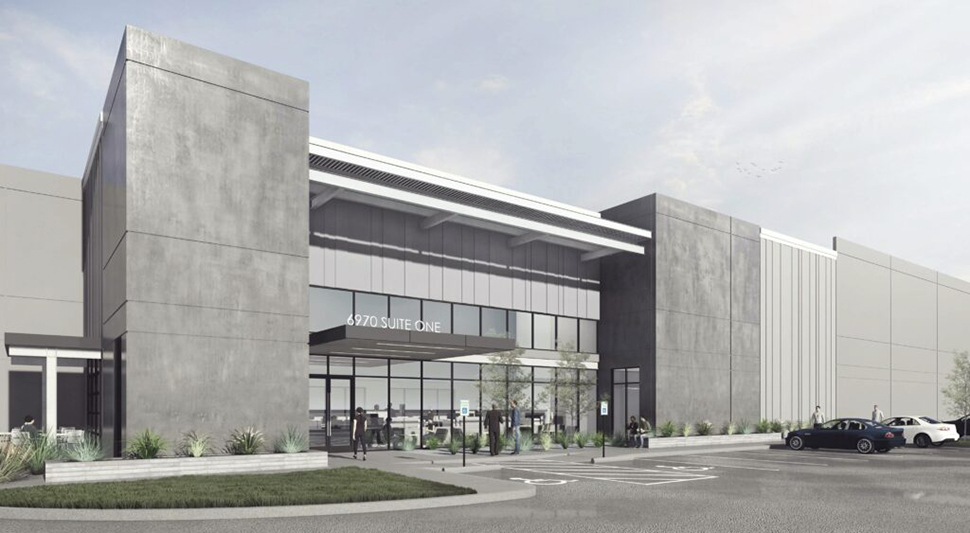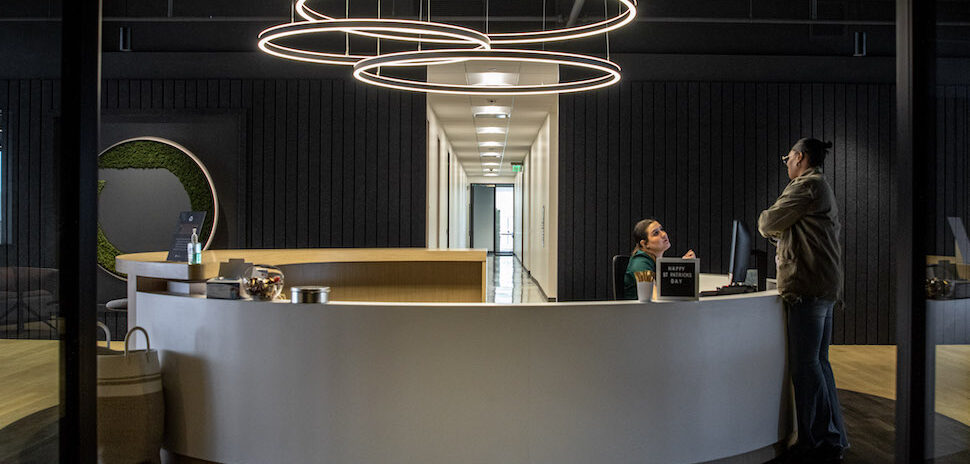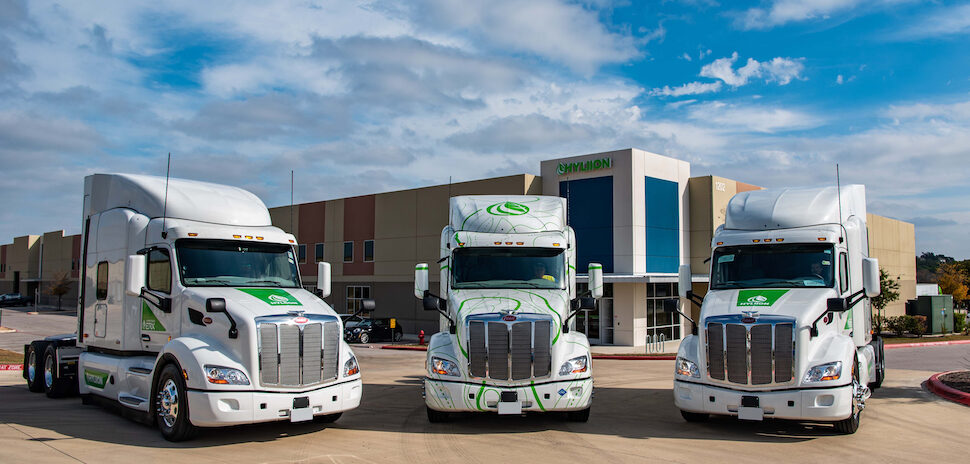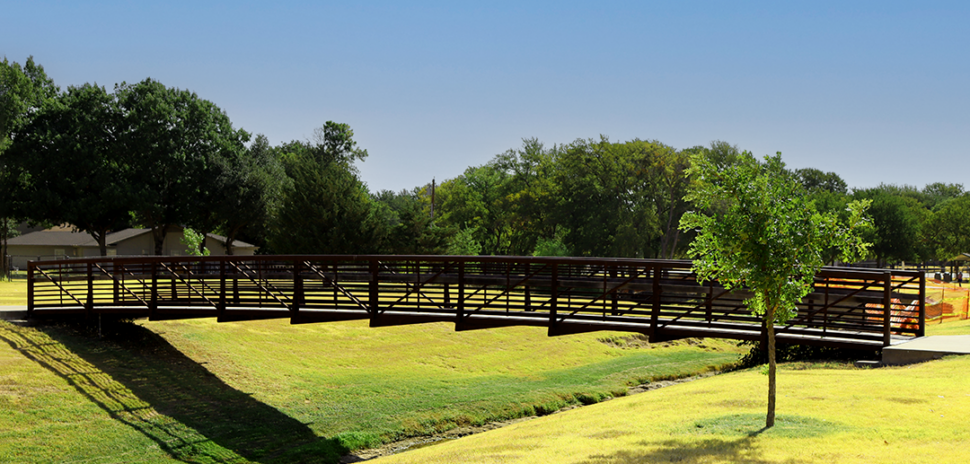An Illinois-based logistics company has taken nearly 600,000 square feet of space to become the first big business to lease at Mesquite’s new Alcott Logistics Station, bringing more than 200 jobs to North Texas.
Officials with RJW Logistics Group Inc. say that the Mesquite facility brings its total footprint to nearly 6 million square feet of space. The new $130 million facility is on East Scyene Road and is a project by Urban Logistics Realty. RJW offers supply chain solutions primarily to consumer-packaged goods and food and beverage customers,
“Establishing an operational hub in Dallas supports our ability to more effectively meet the needs of our existing customer base and onboard new consumer packaged goods suppliers in a growing region,” RJW Logistics CEO Kevin Williamson said in a statement. “Centralized warehousing is a game changer for suppliers.”

Alcott Logistics Station in Mesquite [Courtesy rendering]
Regional warehouses provide better inventory control
The company expects the new warehouse to be operational in mid-2023.
Expecting to ship more than 36 million cases a year, the Mesquite warehouse will service 200 customers and employ some 225 warehouse personnel, the company said. The warehouse represents RJW’s first in the greater Dallas area, serving as the flagship location for RJW’s “one-inventory model” in the South.
As a full-service retail logistics provider, the company aims to serve its customers’ “entire middle mile.”
The company’s single-node model enables RJW to control inventory from one strategic location to reduce overhead, labor, transportation, and other costs. That helps customers “win by reducing costs and inventory hold, while gaining efficiencies and improving scorecard performance,” Williamson said.
By focusing on retail consolidation, RJW is able to “generate a cost savings of 10% to 30% and 98%+ on-time delivery performance for our customers,” a company spokesperson told Dallas Innovates. Customers can benefit from shorter lead times, reduced “safety stock,” simplified inventory replenishment, and improved store level in-stocks, it said.
“Innovating better ways”
Technology plays its part: CEO Williamson says the company uses data and technology systems to determine which of its two regional hubs is most advantageous and cost-effective for a supplier. The company uses “a plethora of proprietary data” to power decision-making, fuel development, and help customers increase their business efficiency.
“We’re continuously innovating better ways to process our data to allow us to maintain our costs, which helps fight inflationary pressure, and trickles down to our customers,” the company said.
RJW Logistics currently serves its customers from multiple consolidation warehouses in the central U.S., providing transportation and warehousing services for major retailers including Walmart, Sam’s Club, Aldi, Kroger, Amazon, and Walgreens. Until its model replication in Dallas, the company said, RJW’s warehouse campus has been located in Illinois where the company operates 10 facilities.
RJW also offers services such as retail consolidation, retailer compliance, advanced analytics and reporting platforms, enterprise software solutions, integration services, value-added services, and asset-based transportation.
Logistics boom in Mesquite and across North Texas
Alcott Logistics Station is Urban Logistics Realty’s second major project in Mesquite and is one of the largest industrial projects in that city. Urban Logistics has plans for more than 1.5 million square feet of warehouse and shipping facilities on an almost 100-acre site.
Urban Logistics Realty built the Urban District 30 industrial park, a five-building, 980,000-square-foot industrial project near Interstate 30 in Mesquite. The first phase of that project was sold to New York-based investor KKR.
Dallas-Fort Worth is fastest-growing industrial market in the nation with more than 80 million square feet of buildings in the pipeline.
![]()
Get on the list.
Dallas Innovates, every day.
Sign up to keep your eye on what’s new and next in Dallas-Fort Worth, every day.






























